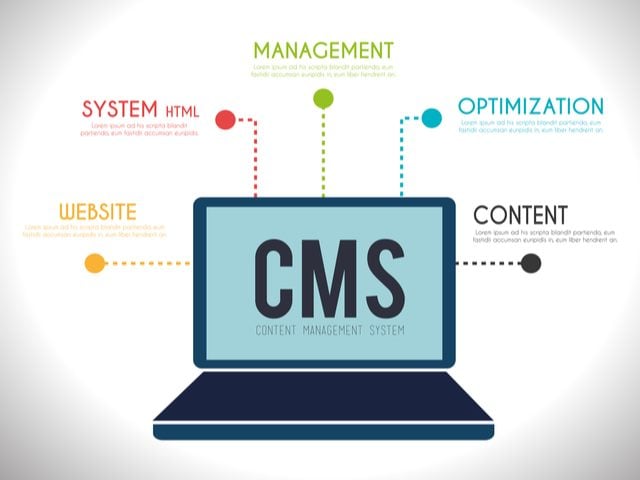
The popularity of trusting a web host to manage the overall infrastructure of a website while ensuring improved data security and management is increasing significantly. It allows businesses and individuals to improve their website access ability and target audiences globally.
If you are looking for a web host in Australia, you can easily buy domain and web hosting online after thorough research and assessing your key needs. You can also add a CMS platform to your website for visible improvement in your website performance and functionality.
In this blog, we will discuss some tips for choosing the right CMS.
What is A CMS Platform?
CMS, or Content Management System, is a solution software that helps take care of the management and infrastructure of your website.
It can complete functions like creating different web pages, storing data and media files like images, and many other functions related to website design, content, and performance.
It works in addition to a web host to provide the users with complete resolution for all their website needs and requirements. Here are some tips for choosing the correct CMS platform.
9 Essential Tips For Choosing The Right CMS
- Assess Your Requirements
To find the right CMS platform, assess and define your requirements based on your long-term and short-term goals and objectives.
In addition, understand your budget constraints before choosing any CMS platform. Both free and paid platforms are available, each with a different use case, cost, and additional fees for features.
- Evaluate Usability
It is essential to check the technical requirements of any CMS platform before making a decision.
User-friendliness is crucial as a complex CMS platform might cause dissatisfaction among the team members due to technical gaps while also creating lag and decreased productivity.
- Check for Flexibility and Scalability
Based on your goals, expansion is possible, so you need to assess the scope of scalability available with any CMS platform before choosing.
This is important as you require a strong platform to handle any scalability requirement for future success.
- Find the Necessary Features
Every CMS platform has its own set of eCommerce features.
Understand the website’s primary goal and base your research solely on that to find the complementary features necessary to establish your website as you envisioned.
- Choose Level for Customisation
Your website’s uniqueness is what makes it attractive to the target audience.
To decide which CMS platform to choose, identify the level of customisation you require and what platforms offer what level of customisation.
- Check for SEO Benefits
Many CMS platforms offer better control over different optimisations for your website, directly impacting the SEO efforts of your company.
This will increase your page ranking, attracting better organic traffic and higher conversion rates.
- Ensure Security
Only go for a CMS platform after assessing the security level. Check for reviews, community feedback, common complaints, etc., and then make a decision.
- Cross-check Support Availability
Having constant support from your CMS platform is necessary to keep your website performance in check. Not having proper customer support can result in unnecessary delays.
Therefore, always research the support documentation available, online forums, and live support options before choosing.
- Scope Of Extension And Plugin
Enhancing your website design and performance using third-party integrations is common for improved user experience.
Always check for the scope of extensions and plugins offered by any CMS platform to make the right decision.
Conclusion
For anyone looking to understand the best way of choosing the right CMS platform, assessing the business requirements to know the exact features and add-ons you require is the first step. CMS directly impacts the business website’s performance and user satisfaction levels.
Therefore, evaluating the multiple options available based on market reviews, customer support, and other essential elements you require for the proper functionality of your website is necessary.
Both free and paid CM platforms are available. However, before rushing towards a free one, understand whether it will support your website requirements. The main objective is a value addition for a better online presence, so choose wisely.





More Stories
Top Dedicated Server Uses and Applications
Charitable Giving Strategies: Making an Impact with Your Wealth
Understanding the Benefits of Business Email Hosting for Small Businesses